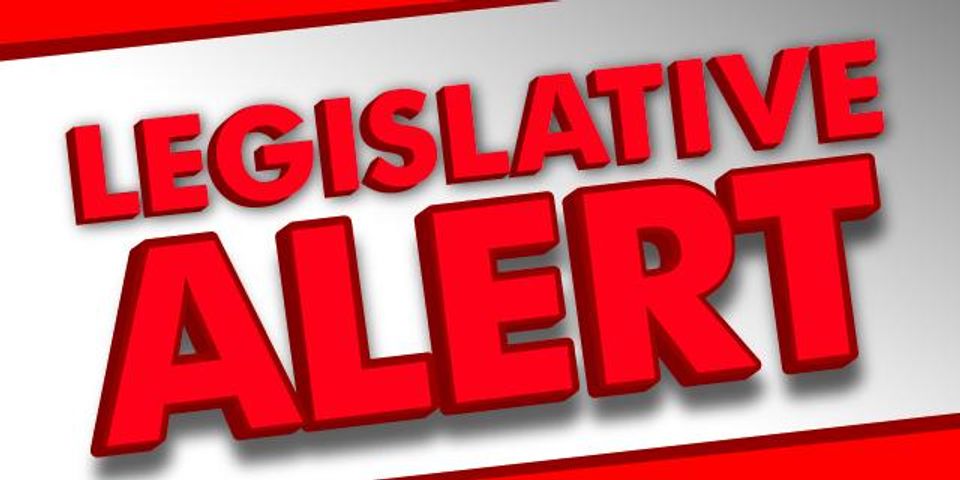2018 Florida Legislative Session Update – Community Association Related Bills
By HMI

Florida’s 2018 Legislative Session is in full swing. Following a fairly busy Florida Legislative Session in 2017, there are again a number of proposed bills relating to community associations currently being considered in Tallahassee. As is our yearly ritual, we are keeping a close eye on proposed legislation relating to community associations. If passed and signed into law, these bills would have a significant impact on community operations throughout the state.
To be clear, this list is not all-inclusive, and the bills will certainly change in number and substance before the end of the regular session scheduled for March 9, 2018. However, below is a snapshot summary of the currently pending legislation which impacts Florida condominiums and homeowner associations:
HB 377: Homeowners’ Associations
- Increases minimum statutory damages for willfully failing to provide official records from $50 per day (up to 10 days) to $500 per day (up to 30 days) – a potential total of $15,000!
- If a community manager or management firm is delegated with the responsibility of providing access to records, a member has a claim against the manager or management firm for the damages. Specifies that managers and management firms cannot be indemnified or otherwise reimbursed by the association for these damages.
- Obligates HOAs to resubmit reports to the Division if there is a material change to the information previously provided under 720.303(13). It is not clear what would be considered “material,” but presumably it would apply to the number of parcels governed by the community, and the amount of total revenues and expenses from the association’s annual budget.
- Removes the ability for HOAs to file a lien against a parcel for fines exceeding $1,000.
- Changes the requirements which trigger an obligation for a developer to turn over control of an HOA to non-developer members.
- Provides that election and recall disputes are eligible for pre-suit mediation. However, this appears to be in addition to the mandatory non-binding arbitration which is currently required by statute.
- Provides that the Department of Business and Professional Regulation (DBPR) shall provide binding arbitration at the request of a parcel owner or HOA for disputes involving rules enforcement, maintenance, assessments, and official records.
- Provides that the DBPR shall provide training and educational programs for HOA members, directors, and officers.
- Provides that the DBPR has enforcement authority over HOAs for records access, financial management, and election infractions. In addition, the DBPR may also investigate any complaint made against an HOA to the DBPR.
- Requires sellers of property subject to HOAs to provide a copy of the governing documents (including all amendments) and current operating budget of association to buyer at least 7 days prior to closing. Buyers may cancel sale within 3 days of receipt of documents.
- Creates limited causes of action against developers, and prohibits developers from using association funds for non-association purposes prior to turnover.
HB 841/ SB 1274: Community Associations
- Specifies that certain documents must be permanently maintained in the official records of condominium associations from the inception of the association
- Refines the list of documents required to be posted on condominium association websites, and limits the association’s liability for inadvertent disclosures of protected information
- Provides additional methods and requirements for electronic notice of meetings
- Provides a limit on consecutive years served by Board members
- Further revises condominium recall procedures based upon the facial invalidity of written agreements or ballots used to recall directors
- Clarifies the disclosure and approval requirements for conflicts of interest
- Revises fining and enforcement procedures
- Adds new budget and reserve requirements for homeowners’ associations
- Clarifies that material alterations and substantial additions must be approved before they are made
- Provides for the automatic removal of directors and officers that are more than 90 days delinquent to homeowner associations
- Prohibits nominations from the floor of homeowner association elections in certain circumstances
- Makes the laws applicable to bulk buyers permanent
HB 873/SB 1238: Homeowners’ Associations
- Incorporates many of the legislative changes that applied only to condominiums in 2017, and applies the same to homeowner associations
- Requires homeowner associations with 150 or more parcels to have a website, with certain official records and notices posted
- Prohibits associations from hiring an attorney who represents the management company of the association
- Requires copies of financial reports to be provided to owners, or within 5 business days of an owner request
- Prohibits the use of debit cards for association expenses
- Revises recall procedures
- Creates new criminal penalties for officers, directors, or managers for soliciting or accepting “kickbacks,” as well as other violationsRevises fining and enforcement procedures
- Provides additional conflict of interest provisions
- Imposes board member term limits
HB 1061: Community Association Fire and Life Safety Systems
- Requires high-rise buildings without fire sprinkler systems to be marked with a warning sign or symbol approved by the State Fire Marshal
- Allows high-rise buildings to opt out of Engineered Life Safety Systems (ELSS)
- Extends opt-out deadlines for Fire Sprinkler and ELSS retrofitting until December 31, 2018, and extends actual retrofitting deadlines.
SB 266: Covenants and Restrictions
- Revises the Marketable Record Title Act (MRTA) to streamline preserving and revitalizing covenants and restrictions
- Permits non-residential property owners’ associations to preserve covenants and restrictions
- Allows non-mandatory homeowners’ associations to revitalize covenants and restrictions that have expired
HB 625: Community Associations
- Requires the DBPR to establish an Office of Community Association Hearings to employ community association hearing officers in lieu of arbitrators for certain disputes, with the authority to impose certain sanctions.
- Allows DBPR to certify attorneys who are not employed by the DBPR to act as community association hearing officers under certain conditions
- Revises the provisions related to alternative dispute resolution for condominium and homeowners associations.
HB 123/SB 1366: Bullying and Harassment in Community Associations
- Creates the “Stand Up for Seniors Act” for communities intended and operated for occupancy by persons 55 years of age and older
- Prohibits and provides definitions for bullying, cyberbullying, and harassment
- Requires associations to adopt policies prohibiting bullying and harassment, with specific statutory requirements including association investigation and enforcement requirements
- Requires policies to be reviewed every three years
SB 1400: Vacation Rentals
- Creates the “Florida Vacation Rental Act”
- Preempts all regulation of vacation rentals to the state and nullifies any local regulations
- Requires vacation rentals to obtain a license
- Specifies that vacation rentals are to be treated as transient rentals regarding certain landlord and tenant provisions
- Grandfathers certain local laws, ordinances, and regulations, etc.
If these bills make their way through the legislative process and become law, they will significantly change the relationship between community associations and their members, and how community associations operate. We will continue to monitor their progress as the 2018 Florida Legislative Session progresses.
With more than 45 years experience in Association Management, HMI has the expertise needed to efficiently manage your Homeowner’s or Condominium Association, while providing the highest level of service to Boards and Owners. Contact HMI’s Regional Director Rick Michaud, or visit HMI online to learn more about their variety of client-customized services today.
About the Business
Have a question? Ask the experts!
Send your question

